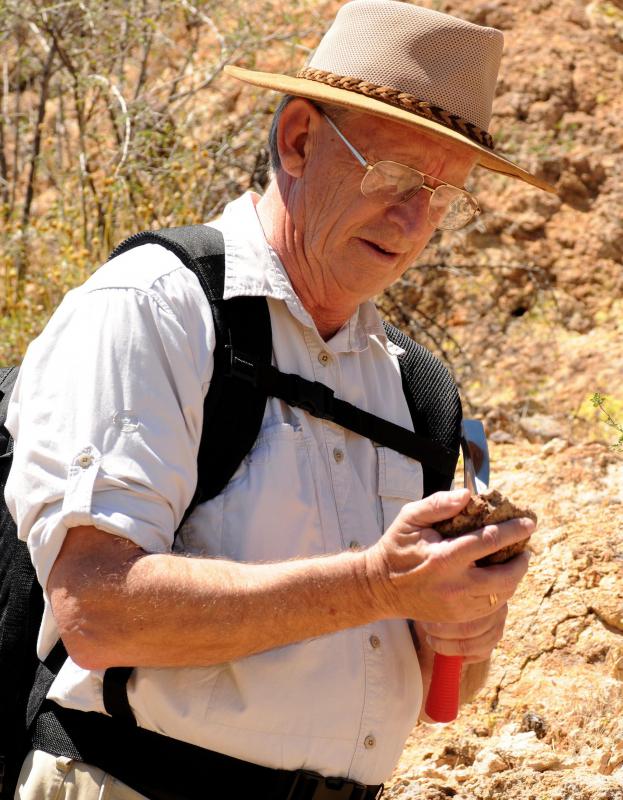At PracticalAdultInsights, we're committed to delivering accurate, trustworthy information. Our expert-authored content is rigorously fact-checked and sourced from credible authorities. Discover how we uphold the highest standards in providing you with reliable knowledge.
How Do I Become an Exploration Geologist?
An exploration geologist helps to locate natural resources by analyzing various geographic features such as rock and soil. You can begin this career by earning a bachelor’s degree in geology. Most local regions also require you to pass a licensing examination to become an exploration geologist, as well as participate in continuing education programs to keep your skills up-to-date. In order to advance beyond an entry-level position, you will be required to complete a master’s or doctoral degree in geology.
A bachelor’s degree in geology is typically required to become an exploration geologist. Geology degree programs require coursework in subjects such as mineralogy, physical geology, and field data collection, as well as environmental geology and data analysis techniques. You should also take classes in earth science and petroleum engineering if you intend to work in the oil or gas exploration industry. This degree will allow you to begin working in an entry-level position to gain the work experience needed for future licensing.

A regional license is also necessary to become an exploration geologist, with a bachelor’s degree in geology and relevant work experience being typically required to take the licensing examination. Some regions will also accept a degree in a related subject along with extensive practical work experience. The amount of work experience varies from one region to another and you should consult with your local licensing board for exact requirements. In the United States, the National Association of State Board of Geology oversees standardized testing for most local regions.

After you become an exploration geologist, you must keep your skills up-to-date with the latest technology and advances in this field. This additional education may be completed in several ways including professional development seminars and trade conventions. Certificate programs in environmental studies will also keep your skills and knowledge current. Many local regions require the completion of a continuing education program for annual license renewal.
A master’s or doctoral degree in geology is usually needed to advance beyond an entry-level position in this field. Two or three years of additional college training are often required to earn a postgraduate geology degree. Master’s degree coursework typically includes subjects such as tectonics, geophysics, and petroleum engineering.
Once you have become an exploration geologist, employment can usually be found in the mining, petroleum, or conservation industry. Many of these professionals are employed by local and regional governments while others work for private consulting firms. You may also be able to secure a college teaching position with a doctoral degree and sufficient work experience.
AS FEATURED ON:
AS FEATURED ON:












Discussion Comments
An Exploration Geologist in the gold mining industry is high demand. Gain experience while you are school. A lot of mining companies will provide internships. This experience will enable you to gain additional experience in the industry.
I am a recruiter for a major mining company and I'm seeking experienced Exploration Geologists. If you have a minimum of five years experience, please contact me.
Post your comments